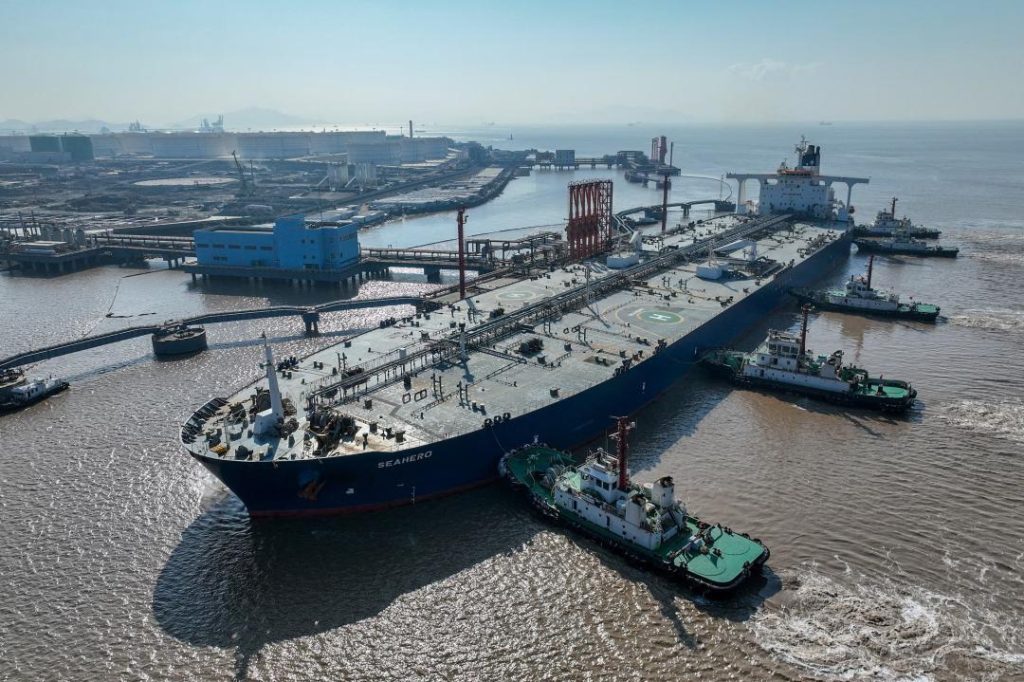
India Sends Diesel to China for First Time Since 2021 Amid US Tariffs & EU Sanctions: Report
In a rare move, India has sent a cargo of diesel to China for the first time since 2021, as reported by Bloomberg. The shipment, comprising around five lakh barrels of diesel, is a significant development considering the strained relations between the two countries. Additionally, this comes at a time when India’s Nayara Energy, which is linked to Russia and controls India’s second-largest refinery, is facing sanctions from the European Union.
According to the report, the cargo was initially bound for Malaysia but made a dramatic U-turn towards China’s Zhoushan port. This decision is likely to raise eyebrows, given the ongoing tensions and trade restrictions between India and China. The shipment’s destination and the company behind it have significant implications for the global energy landscape.
The cargo’s departure is attributed to Nayara Energy, which is a subsidiary of the Rosneft-led consortium that owns the Essar Oil Refinery in Vadinar, Gujarat. The refinery has a capacity of 20 million metric tons per annum and is one of the largest in the country. Nayara Energy’s decision to send the diesel to China is a significant departure from its usual exports, which primarily go to countries in Southeast Asia.
The development comes at a time when India is facing challenges in its energy sector, including a shortage of diesel and rising fuel prices. The country’s fuel demand has been steadily increasing, driven by the growth of its automotive sector and industrial activities. However, the shortage of diesel has led to concerns about the sector’s sustainability and the potential impact on the economy.
The decision to send the diesel to China also raises questions about the country’s priorities in the energy sector. India has been working to reduce its dependence on imported oil and has set a target of becoming self-sufficient in the next few years. The government has been promoting the use of alternative fuels, such as biofuels and electric vehicles, to reduce its reliance on fossil fuels.
However, the recent shipment of diesel to China suggests that India is still reliant on imported oil and is willing to engage in trade with countries that may not share its values or interests. The decision may also have implications for India’s relations with the United States, which has imposed 50% tariffs on Indian exports as part of its ongoing trade tensions with the country.
The European Union has also announced sanctions on Nayara Energy, citing its links to Russia and its role in the country’s energy sector. The sanctions are part of a broader package of measures aimed at restricting Russia’s ability to fund its military activities in Ukraine. However, the decision to send the diesel to China despite these sanctions suggests that Nayara Energy is willing to defy international pressure and engage in trade with countries that are subject to sanctions.
The development also highlights the complex and evolving nature of global energy politics. As countries increasingly seek to assert their interests and influence in the energy sector, the traditional dynamics of the global energy market are being reshaped. The decision to send the diesel to China is a significant departure from the traditional energy trade routes and has significant implications for the global energy landscape.
In conclusion, the shipment of diesel from India to China is a significant development that highlights the complex and evolving nature of global energy politics. The decision to send the diesel to China despite tensions and trade restrictions between the two countries suggests that Nayara Energy is willing to defy international pressure and engage in trade with countries that are subject to sanctions. The development also raises questions about India’s priorities in the energy sector and its willingness to engage in trade with countries that may not share its values or interests.






